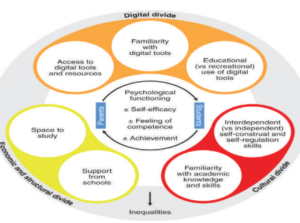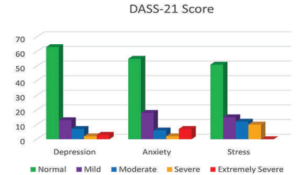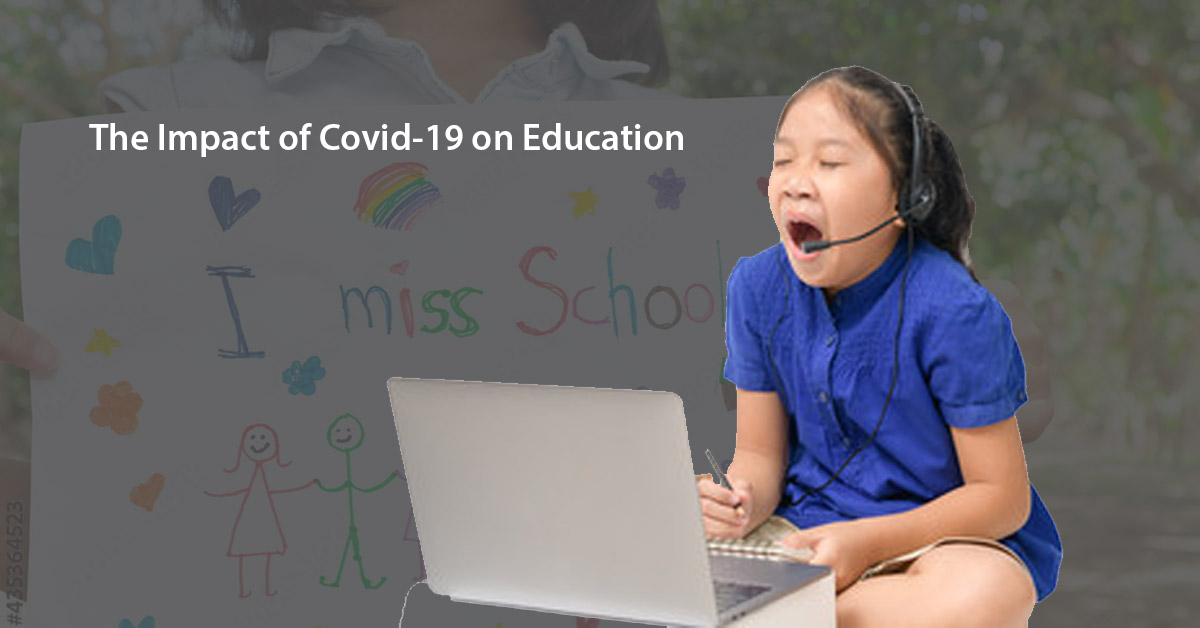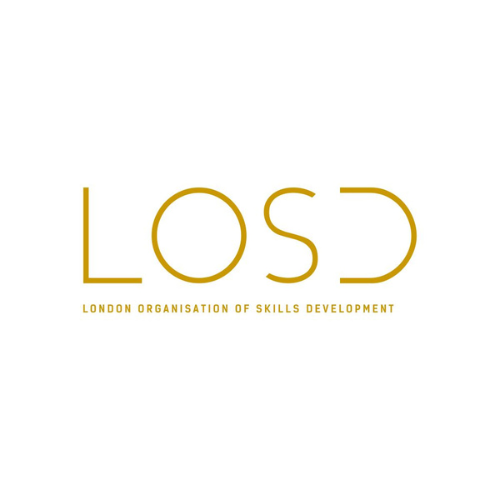Research Objectives
This research paper explores the multifaceted impact of COVID-19 on education and equality. It discusses the closure of schools, the shift towards remote learning, and the challenges faced by students and educators. In addition, the study examines the consequences on academic progress, access to educational resources, and widening inequalities.
Keywords
COVID-19, Education, Equality, Remote learning, Academic progress.
Bio
Prof. Dr Parin Somani is Chairperson of Global Research Conferences, Chief Editor of Global Research Journal, Independent Academic Scholar, TEDx Speaker, Educator, International Motivational speaker, Author, Writer, Banker, Humanitarian, Philanthropist and Multi-International Award Winner. She has achieved Eight Doctorate degrees and has been recognised Five times in the World Book of Records, Twice in the India Book of Records, Asia Book of Records, Karnataka Book of Records and also in the Golden Book of World Records. With the aim to help global societies in the field of Education, Women Empowerment and Youth Development. Prof. Dr. Parin Somani has travelled to more than 117 countries around the world and has published 41+ educational papers, newspaper/magazine articles, 19 books and featured in 100+ videos, 177+ newspapers/ books for her amazing societal contribution. During the COVID-19 pandemic she has helped to educate 100,000+ people globally through her Humanitarian work hence, invited to deliver her research at Harvard University and invited by Governors of different Indian States to discuss challenging issues to help global societies.
Abstract
The emergence of the novel coronavirus, also known as COVID-19, has caused an unprecedented global health crisis, disrupting societies, economies, and numerous aspects of daily life. One of the areas profoundly affected by the pandemic is education, as schools and educational institutions around the world have been compelled to close their doors temporarily or transition to remote learning. The significant impact of COVID-19 on education has raised concerns about the exacerbation of existing inequalities and the potential long-term consequences for learners and societies. This research paper explores the multifaceted impact of COVID-19 on education and equality. It discusses the closure of schools, the shift towards remote learning, and the challenges faced by students and educators. In addition, the study examines the consequences on academic progress, access to educational resources, and widening inequalities. Furthermore, it explores strategies and interventions aimed at mitigating the negative effects and promoting educational equity. The findings highlight the urgent need for innovative approaches to ensure inclusive and equitable education in times of crisis. By critically analysing the impact of COVID-19 on education and equality, this research study seeks to contribute to a better understanding of the ongoing crisis and stimulate informed discussions on the measures needed to ensure equitable access to quality education for all learners, especially during times of extraordinary challenges.
Introduction
The emergence of the novel coronavirus, also known as COVID-19, has caused an unprecedented global health crisis, disrupting societies, economies, and numerous aspects of daily life. One of the areas profoundly affected by the pandemic is education, as schools and educational institutions around the world have been compelled to close their doors temporarily or transition to remote learning. The significant impact of COVID-19 on education has raised concerns about the exacerbation of existing inequalities and the potential long-term consequences for learners and societies. This research paper explores the multifaceted impact of COVID-19 on education and equality. Education is widely recognized as a fundamental pillar of development, a catalyst for social progress, and a key determinant of individual opportunities and outcomes. However, the pandemic has created a myriad of challenges that have disrupted the education system and jeopardized the achievement of these critical goals.
Firstly, the paper will examine the immediate effects of COVID-19 on educational systems worldwide, highlighting the abrupt closures of schools and the rapid shift to remote learning modalities. This section will delve into the challenges faced by educators, students, and parents during the transition to online education, including issues of access to technology, connectivity, and digital literacy. Furthermore, it will analyse the consequences of disrupted classroom instruction on learning outcomes, academic progress, and socio-emotional development.
For instance, a study conducted by UNESCO (2020) reported that 1.5 billion learners in 191 countries were affected by school closures due to COVID-19 (UNESCO, 2020). The study highlighted the challenges faced by students in accessing online learning platforms and the adverse effects on learning outcomes. Another research by Engzell et al. (2020) examined the impact of school closures on educational inequality using data from Sweden and found that the closures widened existing disparities in academic performance between students from different socioeconomic backgrounds (Engzell, Frey, & Verhagen, 2020).
Secondly, the research will investigate the unequal impact of the pandemic on different student populations. It will explore how pre-existing disparities based on socioeconomic status, gender, geographic location, and other factors have been exacerbated during the crisis. The paper will examine the disproportionate effects on marginalized groups, such as students from low-income backgrounds, rural areas, ethnic minorities, and individuals with disabilities. Additionally, it will analyse the challenges faced by vulnerable populations, including refugees, displaced persons, and those lacking access to necessary support structures.
A study by Chetty et al. (2020) examined the unequal access to online learning during the pandemic in the United States and found that students from low-income communities and schools with a high proportion of minority students had less access to online platforms and experienced greater learning losses (Chetty, Friedman, Hendren, Stepner, & Team, 2020). Another study by United Nations (2021) highlighted the impact of COVID-19 on refugee education, pointing out that school closures and limited access to technology disproportionately affected refugee children, exacerbating their educational inequalities (UN, 2021).
Furthermore, the study will explore the long-term consequences of the pandemic on educational equity. It will examine how the disruptions caused by COVID-19 could lead to increased dropout rates, learning gaps, and a widening of educational inequalities. The paper will also discuss the potential effects on higher education, such as enrolment patterns, access to resources, and implications for future employment prospects.
Research by Bacher-Hicks et al. (2021) investigated the impact of school closures on student learning in the United States and projected significant learning losses, particularly for disadvantaged students (Bacher-Hicks, Goodman, & Mulhern, 2021). The study emphasized the importance of targeted interventions and resources to mitigate the long-term effects of the pandemic on educational equity. Additionally, a report by the World Bank (2021) highlighted the potential consequences of COVID-19 on higher education, including reduced enrolment rates, financial constraints, and disruptions to research activities, with a disproportionate impact on students from low-income backgrounds (WB, 2021).
By critically analysing the impact of COVID-19 on education and equality, this research paper seeks to contribute to a better understanding of the ongoing crisis and stimulate informed discussions on the measures needed to ensure equitable access to quality education for all learners, especially during times of extraordinary challenges.
Objectives
This research paper aims to explore the impact of COVID-19 on education and equality. It examines the disruptions caused by the closure of schools and the subsequent shift towards remote learning. Additionally, it investigates the consequences of these changes on students’ academic progress, access to educational resources, and the exacerbation of existing inequalities. Finally, strategies and interventions are suggested that can help mitigate the negative effects and promote educational equity during times of crisis. A review of published and grey literature sources has been examined within this study.
Results and Discussion
Disruption of Learning
One of the most immediate and apparent impacts of COVID-19 on education has been the disruption of learning. According to UNESCO, at the peak of the crisis, over 1.6 billion students in more than 190 countries were affected by school closures (Somani, Post Covid-19 Effects on the Future of Students in Higher Education, 2021). The closure of schools and educational institutions has resulted in the loss of valuable instructional time, with students being unable to access face- to-face teaching and interaction with their peers. The disruption has been particularly challenging for students from disadvantaged backgrounds, who may lack access to resources and support systems outside of school.
To control the spread of the virus, many countries implemented school closures, resulting in a shift to remote learning. However, not all students had access to the necessary technology, internet connectivity, or supportive home environments to effectively participate in online education (Somani, Information Technology Challenges Faced during the Covid-19 Pandemic in Higher Education, 2021). This digital divide disproportionately affected students from disadvantaged backgrounds, widening existing educational inequalities. The transition to remote learning during the pandemic has highlighted and exacerbated existing inequalities in access to technology and internet connectivity. This digital divide has widened educational inequalities, as students without access to online resources and support have been left at a disadvantage. The lack of equitable access to online learning has disproportionately affected marginalized and vulnerable groups, further deepening existing disparities.
Inequitable Access to Online Learning
The transition to remote learning during the pandemic has highlighted and exacerbated existing inequalities in access to technology and internet connectivity. Many students, especially those from low-income households or rural areas, lack the necessary devices, internet access, or digital skills to participate effectively in online learning (Somani, E-learning in Tomorrow’s Age, 2021). This digital divide has widened educational inequalities, as students without access to online resources and support have been left at a disadvantage. The lack of equitable access to online learning has disproportionately affected marginalized and vulnerable groups, further deepening existing disparities. During educational institutional closures social inequality processes were highlighted as in figure 1. The psychological functioning of students is influenced by divides in economy, structure and digitalisation, contributing to heightened inequalities.
Increased Education Inequality
The COVID-19 pandemic has resulted in a significant increase in education inequality. Vulnerable and marginalized groups, such as girls,

Figure 1. (Goudeau, Sanrey, & Stanczak, 2021)
children with disabilities, refugees, and those from low-income families, have faced increased barriers to education. According to UNICEF, approximately 168 million children globally have been out of school for almost a year due to school closures, exacerbating inequalities in access to education (UNICEF, 2021). Girls, in particular, are at risk of being disproportionately affected, as they may face increased household chores, early marriage, or other forms of gender-based discrimination during the pandemic.
Gender disparities
COVID-19 has also highlighted gender disparities in education. In some cases, girls have faced increased barriers to education, including heightened domestic responsibilities, early marriages, and economic hardships within their families. These challenges can result in a higher dropout rate and hinder progress towards gender equality in education (Somani, Strengthening Women Empowerment and Gender Equality in India, 2022).
Academic Performance
Extended periods of school closures and disrupted learning have led to learning loss and a negative impact on academic performance. Studies conducted during the pandemic have shown a decline in student learning outcomes, particularly in reading and mathematics (Kuhfeld, 2020). The consequences of learning loss are likely to be more severe for students from disadvantaged backgrounds who may have limited access to supplementary educational resources and support systems outside of school. The long-term impact of learning loss on educational equality is a cause for concern, as it may perpetuate existing disparities and hinder social mobility.
Learning loss
The disruption caused by school closures and the transition to remote learning has resulted in significant learning loss for many students. The quality of online education varied widely, and some students struggled to adapt to virtual learning environments, leading to gaps in knowledge and skills (Somani, PAVING A PATHWAY TO A ‘NEW NORMAL’ THROUGH EDUCATION, 2021). This learning loss has been particularly detrimental to students from marginalized communities who may have limited access to resources for catching up.

Figure 2. (Ruzlin, et al., 2021)
Mental Health and Well-being
The pandemic has taken a toll on the mental health and well-being of students, teachers, and parents. The abrupt shift to remote learning, social isolation, increased stress, and anxieties associated with the pandemic have affected the overall well-being of individuals, potentially impacting their ability to learn and engage effectively in educational activities (Somani, The Impact of COVID-19 on Human Psychology. , 2020). Students from disadvantaged backgrounds may face additional challenges in managing their mental health due to limited access to support services and resources. Addressing the mental health needs of students and providing adequate support is essential to ensure educational equality during and after the pandemic.
There has been a profound impact on the mental health and well-being of students. Isolation, uncertainty, and disrupted routines have led to increased stress, anxiety, and depression among many students (Somani, COVID-19 Lockdown Impact On Education, 2021). The lack of social interaction and support systems that schools provide can further exacerbate these challenges, disproportionately affecting vulnerable students. Figure 2 highlights that within a study carried out by Ruzlin et al, the prevalence of stress within students was 37%, anxiety 33% and depression 25% respectively (Ruzlin, et al., 2021).
Increased Dropout Rates
School closures and the economic consequences of the pandemic have led to increased dropout rates, particularly among students from disadvantaged backgrounds. Many students have been forced into labour or marriage, while others have lost interest or motivation to continue their education (UN, 2021). The increased dropout rates threaten to widen educational inequalities further, as marginalized, and vulnerable students (UN, 2021). The increased dropout rates threaten to widen educational inequalities further, as marginalized, and vulnerable students are disproportionately affected. Efforts must be made to identify and support students at risk of dropping out, providing targeted interventions to ensure their continued education.
Special needs education
Students with disabilities or special needs faced unique challenges during the pandemic. The shift to online learning often posed difficulties for students requiring individualized support and accommodations. Access to specialized services, therapies, and assistive technologies was disrupted, further marginalizing these students.
Conclusion
The COVID-19 pandemic has presented significant challenges for the education sector, disrupting learning processes and deepening existing inequalities. The closure of schools and the shift towards remote learning have had profound consequences for students’ academic progress and access to educational resources. Marginalized and vulnerable populations have been disproportionately affected, exacerbating educational inequities. However, strategies such as ensuring access to technology, providing support for special needs students, addressing mental health concerns, and fostering community engagement can help mitigate the negative effects. By prioritizing educational equity and implementing inclusive policies, societies can build a more resilient and equitable education system for the future.
Inequalities have been exacerbated highlighting existing educational disparities and creating new challenges for students, teachers, and communities. The disruption of learning, inequitable access to online learning, increased education inequality, learning loss, mental health concerns, and increased dropout rates are among the key areas of concern. Addressing these issues requires a multi-faceted approach that involves policy interventions, investment in technology and infrastructure, targeted support for marginalized and vulnerable groups, and collaboration between governments, educational institutions, and civil society organizations. It is essential to prioritize educational equality and ensure that the most disadvantaged students are not left further behind as we navigate the post-pandemic era. Steps such as providing equitable access to technology and internet connectivity, offering targeted support to disadvantaged students, implementing catch-up programs, prioritizing mental health and well-being, and ensuring inclusive education for all students, including those with special needs, can help mitigate the adverse effects of the pandemic and promote educational equality.
References
Bacher-Hicks, A., Goodman, J., & Mulhern, C. (2021). Inequality in Household Adaptation to Schooling Shocks: Covid-Induced Online Learning Engagement in Real Time. NBER Working Paper.
Chetty, R., Friedman, J. N., Hendren, N., Stepner, M., & Team, O. O. (2020). How did COVID-19 and Stabilization Policies Affect Spending and Employment? A New Real-Time Economic Tracker Based on Private Sector Data. NBER Working Paper.
Engzell, P., Frey, A., & Verhagen, M.D. (2020). Learning Inequality during the COVID-19 Pandemic. Proceedings of the National Academy of Sciences (p. 118). National Academy of Sciences.
Goudeau, S., Sanrey, C., & Stanczak, A.e. (2021). Why lockdown and distance learning during the COVID- 19 pandemic are likely to increase the social class achievement gap. Nataral Human Behaviour, 1273–1281.
Kuhfeld, M. e. (2020). Projecting the Potential Impacts of COVID-19 School Closures on Academic Achievement. . Working paper in progress.
Ruzlin, A. N., Chen, X. W., Yunus, R. M., Samsudin, E. Z., Selamat, M. I., & Ismail, Z. (2021). Promoting Mental Health During the COVID-19 Pandemic: A Hybrid, Innovative Approach in Malaysia. Front. Public Health.
Somani, P. (2020). The Impact of COVID-19 on Human Psychology. . In B. S. Lal, & N. Patel, Economics of Covid-19 Digital Health Education & Psychology (pp. 328-357). New Delhi: Adhyayan Publishers & Distributors.
Somani, P. (2021). COVID-19 Lockdown Impact On Education. In P. Somani, P. Sisodia, & L. N. Jayanthi, Lockdown Impacts (pp. 1-10). Tamilnadu: ESN Publications.
Somani, P. (2021). E-learning in Tomorrow’s Age. Proceedings ARICBEST (pp. 3-10). Oxford: London Institute of Skills Development.
Somani, P. (2021). Information Technology Challenges Faced during the Covid-19 Pandemic in Higher Education. International Journal of Latest Research in Engineering and Technology, 106.
Somani, P. (2022). Strengthening Women Empowerment and Gender Equality in India. International Journal of Social Science And Human Research, 271-275.
U N.(2021). Policy Brief: The Impact of COVID-19 on Children. Retrieved from . Geneva: United Nations.
UNESCO. (2020). Education: From Disruption to Recovery. Geneva: UNESCO.
UNICEF. (2021). Education. Retrieved from . Retrieved from UNICEF: https:// www.unicef.org/education
W B (2021). COVID-19 Crisis through a Migration Lens. Retrieved from World Bank: https://openknowledge. worldbank.org/handle/10986/34961.



